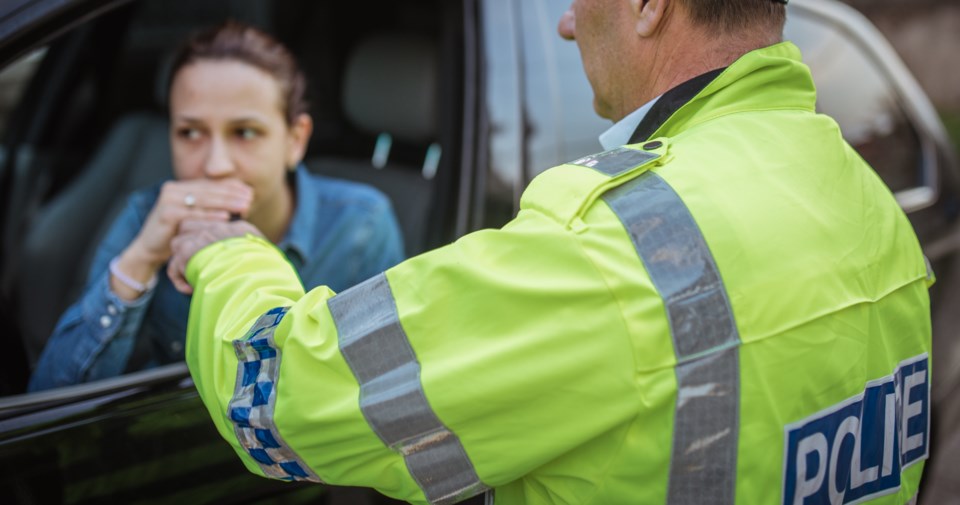Watch your speed when driving along the Mary Hill Bypass and Lougheed Highway in Port Coquitlam.
RCMP handed out hundreds of traffic-enforcement tickets over the summer to commuters on the two routes and other major roads, police told Port Coquitlam's committee of council yesterday, Nov. 7.
In the detachment's third quarterly report to the city, Insp. Darren Carr said police saw upticks in traffic infractions from July to September and "encouraged" general duty members to take part in the blitzes.
In total, Mounties handed out the following traffic violation tickets this summer to drivers in PoCo:
- speed = 644
- distracted driving = 196
- impaired driving = 14
- no seatbelt = 65
- intersection = 26
Asked by Coun. Steve Darling about the near tripling of tickets issued for alcohol/drug driving, Carr said the offence is a concern for police especially as the holiday season approaches.
Carr said the detachment welcomes community feedback about traffic hot spots.
"We will look at the data to see if there’s anything we can do," he told the committee.
Person, property crimes
As for other crimes in Port Coquitlam, officers responded to 3,816 activities versus 7,980 in Coquitlam, which shares a detachment with PoCo.
Person crimes (i.e., assaults, robberies, sex offences) are up two per cent compared with the three-year average while property crimes (i.e., break-ins, theft of and from vehicles, shoplifting, fraud) dropped nine per cent overall in Port Coquitlam in Q3.
To target prolific shoplifters over the summer, the RCMP's Community Response Team took part in Project Barcode, a program started by the Vancouver Police Department.
On its first day, officers in PoCo arrested several suspects and are recommending formal charges.
Project Barcode "strikes at the heart at what we do in policing," Carr said.
Mental health calls
Meanwhile, PoCo politicians also voiced concern about the local policing resources being spent to find missing people, of which most are leaving the Red Fish Healing Centre for Mental Health and Addiction on the səmiq̓wəʔelə/Riverview Lands and the homeless shelter at 3030 Gordon Ave. — both in Coquitlam.
Last month, RCMP Supt. Keith Bramhill told Coquitlam's committee that nearly seven full-time officers are tasked to locate missing people in the community.
Yesterday, Carr rounded down that number to four Mounties as Red Fish recently made changes to its facility, which have cut calls for service by 20 per cent.
"Due to improvements in protocols, enhanced efficiencies and improved relationships, we were able to reduce the actual request to four FTE officers," the Coquitlam RCMP communications team confirmed to the Tri-City News today, Nov. 8.
Coun. Darrell Penner said Coquitlam and Port Coquitlam have to pick up the policing bill for clients leaving a provincial treatment centre.
Mayor Brad West said he’s raised the issue with PoCo MLA Mike Farnworth, B.C.'s Solicitor General, public safety minister and deputy premier.
Red Fish, he said, has 105 beds for clients from across B.C. — not exclusively for Coquitlam and Port Coquitlam residents — and “is having a significant impact."
"I’ve asked the province to come to the table and fund the services that they are creating," the mayor said.
This week, to handle the rise of mental health calls, the detachment is having a soft launch of its Mobile Integrated Crisis Response (MICR) unit, which includes two psychiatric nurses under Fraser Health who will ride with police — similar to Car 67 in Surrey and Car 87 in Vancouver.
Locally, the team will work seven days a week from 10 a.m. to 10 p.m., Carr said.



